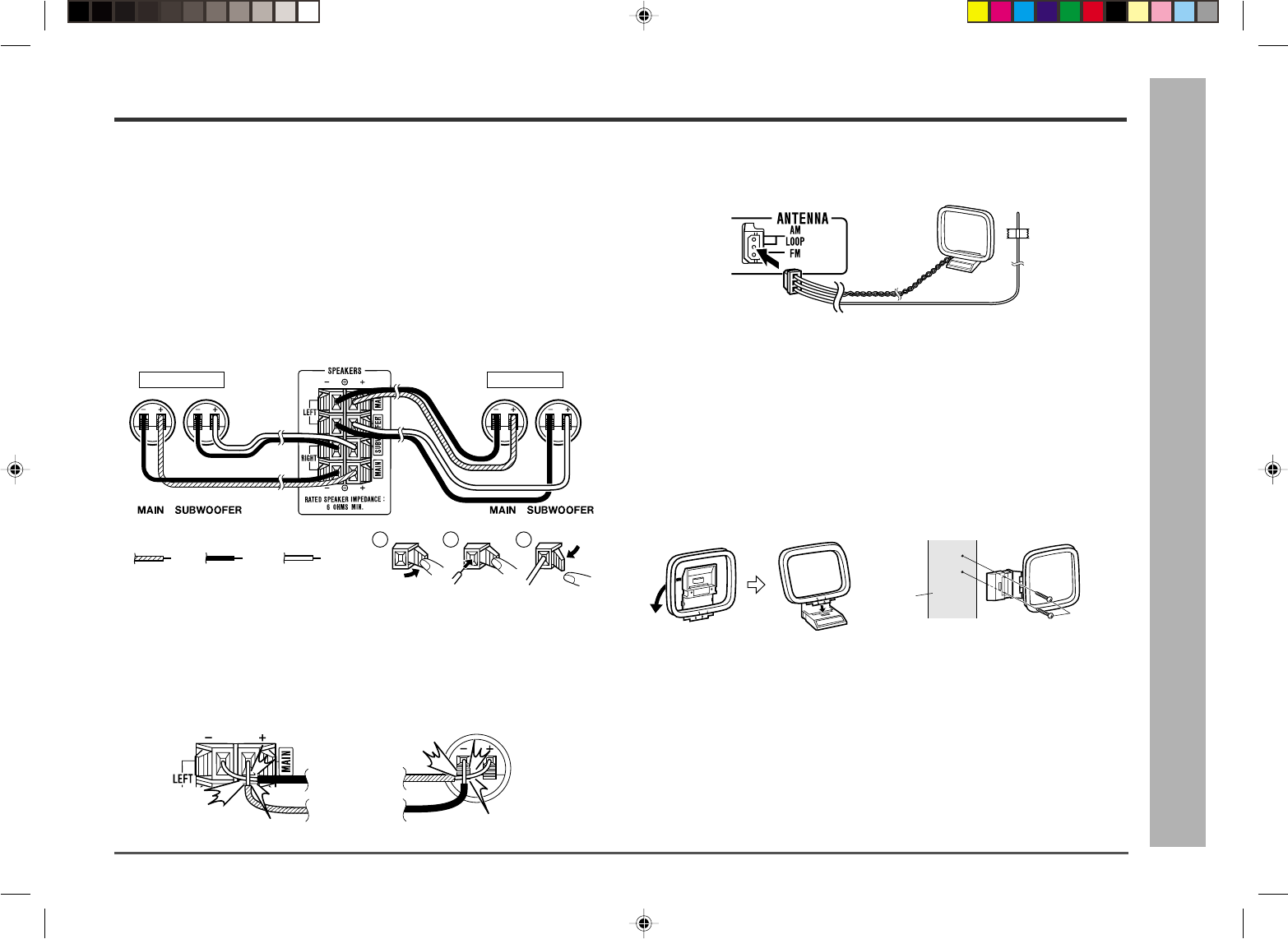
11
Preparation for Use
– System Connections –
■
FM/AM loop antenna connection
Connect the FM/AM loop antenna to the FM/AM loop antenna jack.
Position the FM antenna wire and rotate the AM loop antenna for optimum reception.
Place the AM loop antenna on a shelf, or attach it to a stand or a wall.
Notes:
● Placing the antenna on the stereo system or near the AC power cord may cause
noise pickup.
Place the antenna away from the stereo system for better reception.
● Do not connect the attached FM antenna to an outdoor FM antenna. Otherwise,
trouble may occur.
Installing the AM loop antenna:
Assembling Attaching to the wall
Screws
Wall
■
Connecting the AC power cord
After checking all the connections have been made correctly, plug the AC
power cord of this unit into the AC outlet.
If you plug in the unit first, the unit will enter the demonstration mode.
Note:
Unplug the unit if it will not be used for a prolonged period of time.
Incorrect
Incorrect
■
Remove the transport screw
Before turning the power on, be sure to remove the transport screw on the back
of the unit using a flat-blade screwdriver or a coin.
Note:
This screw is required when transporting the unit again. Please keep it (see page 30).
■
Speaker connection
Main terminals:
Connect the blue wire to the (+) and the black one to the (–).
Subwoofer terminals:
Connect the red wire to the (+) and the black one to the (–).
1
2
3
Right speaker Left speaker
Blue Black
Red
Caution:
●
Connect the speaker wires to the speakers first, then to the unit.
● Never mistake the MAIN and the SUBWOOFER terminals.
The stereo system or the speakers may be damaged .
● Only the included speakers should be used with this product.
Do not use other speakers with this unit or use the supplied speakers with other units.
● Do not mistake the right and the left channels.
The right speaker is the one on the right side when you face the unit.
● Do not let the bare speaker wires touch each other.
● Do not stand or sit on the speakers. You may be injured.
■ Demonstration mode (See page 13.)


















